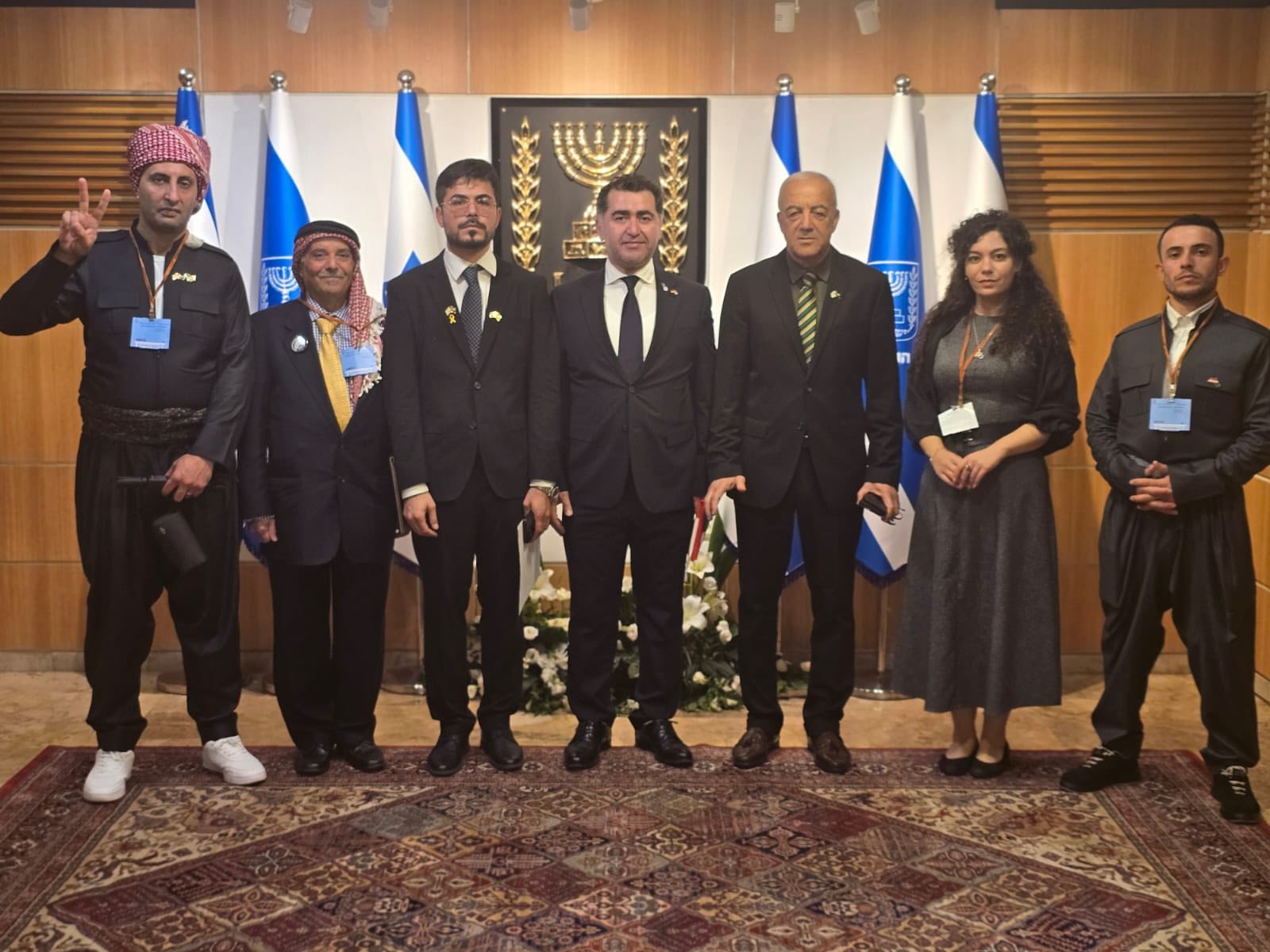Small Tel Aviv Meeting on ‘Minorities’ Triggers Syrian Debate

On October 27 in Tel Aviv, Israeli journalist Eddy Cohen hosted a “Minorities Conference” of roughly 30 participants. Speakers attacked Syrian President Ahmed al-Sharaa and urged separate statelets for Syrian and Middle Eastern minorities, igniting heated debate.
Context: Attendees included Syrians Hassan Marhej, a self-described Middle East affairs expert and regular guest on Israeli channels who called for secession; Tamim Kharmashu, a Syrian member of the Mashriq Council in the United States; and ‘Abd al-Ilah al-Ma‘alla, a Jordanian politician residing in Israel. Druze sheikh Marwan Kiwan from Suwayda joined via video. From the Israeli side were TV journalist and i24 Arab-affairs commentator Zvi Yehezkeli; historian Mordkhadi Kader; Professor Moshe Cohen Eliya; and Knesset member Akram Hasson, who compared abuses against Sweida’s Druze clerics to Nazi persecution and vowed to fight “takfiri terrorism.” Kurdish figures also took part, including Iranian Kurdish activist Aref Bawjani, leader of the “Kurdistan Freedom” party, and Alan Wali, a Syrian Kurdish activist who appears to be a KDP member and is active in meetings with KDP officials; Kurdish attendees have also been meeting with Knesset members. The meeting promoted a liaison office funded by donors in Syria, Iraq, Lebanon, and Israel; an Israel-based legal team reporting to the Prime Minister’s Office, the Knesset Security Committee, and the Foreign Ministry; a semi-monthly media bulletin; and a confidential complaints fund, alongside calls to combat ISIS, Jabhat al-Nusra, and Hay’at Tahrir al-Sham and to back community self-determination within legal and international frameworks.
Analysis: The arguments around the conference pull in different directions but revolve around a shared anxiety about where Syria’s internal fractures are heading. Eiad Charbaji, a secular Syrian journalist, casts the meeting as an Israeli political project that exploits the recent violent clashes—first on the coast against Alawites, which the government framed as a crackdown on remnants of the Assad regime, and later in Sweida against Druze militias that resisted government forces entering their city (which Charbaji calls a “massacre”). In his view, Damascus either ignores the conference and entrenches hostility toward minorities, or cuts it off by issuing a public apology to Alawite and Druze communities, prosecuting perpetrators through a special court with public testimony, and hosting an open forum in Damascus where minority representatives and victims’ families speak freely under independent media coverage.
Ahed Elhendi, a pro-SDF Assyrian analyst, pushes back on the premise that such gatherings move Israeli policy at all, arguing Israel acts through a strict security calculus at moments of “absolute necessity,” not via conferences or PR—citing the “pager” episode followed by the assassination of Nasrallah—and questioning what the attendees actually expect Israel to deliver, such as securing a “Coastal Region.”
Ibrahim Kaban, a Syrian Kurdish analyst, rejects the conference’s framing from another angle: Kurds are not a “minority” to be slotted under that label; they are a major nationality in Syria. He says his issue is with the name rather than the act or venue of meeting, and that Kurds who attended as “minorities” represent only themselves.
These positions intersect with a wider reaction among pro-government Sunni Arab proponents, who fear that even a small Tel Aviv event—especially with Kurdish and Durze attendees meeting Knesset members—signals momentum toward fragmentation. They argue Israel has been open about favoring a fragmented Syria under a weak central authority, and therefore see the conference’s self-determination language and its proposed liaison-legal-media machinery as steps that must be countered by accountability and an inclusive national process inside Damascus rather than by slogans or silence.









